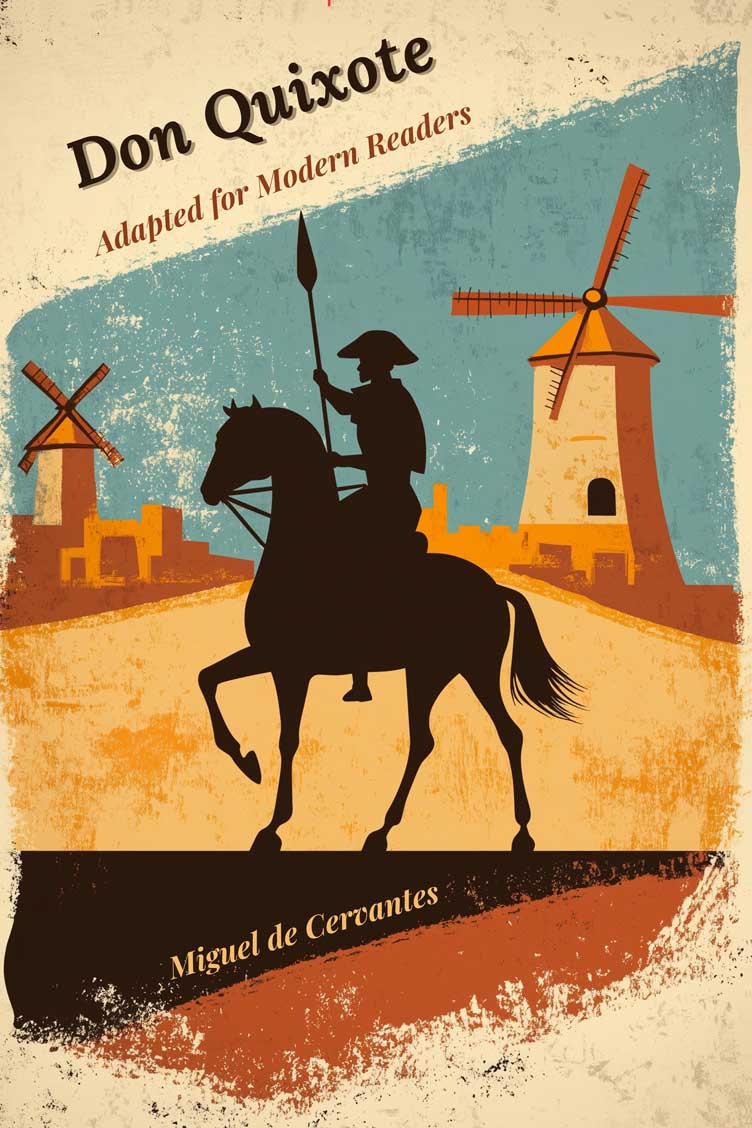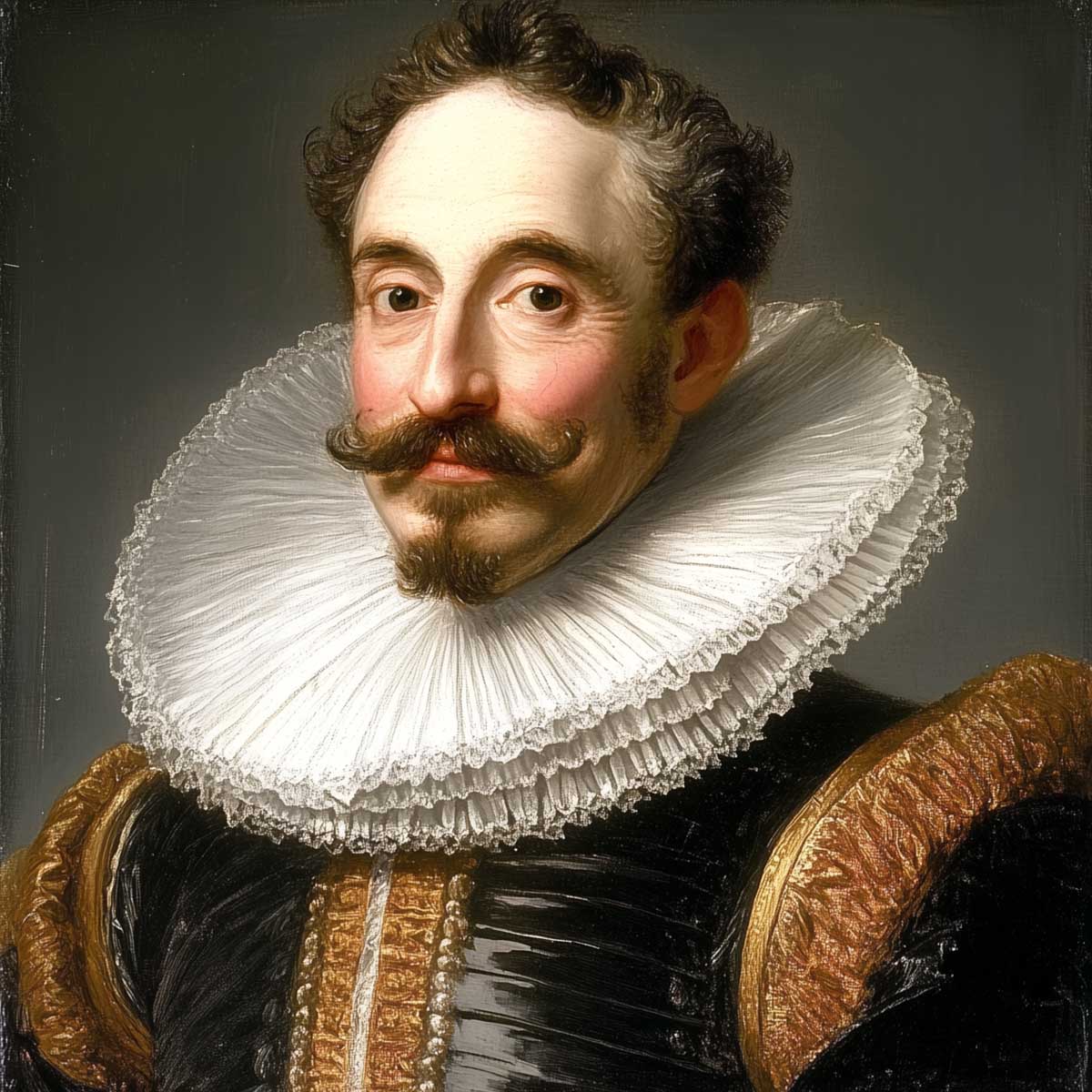Back to Classic Adaptations Purchase on Amazon
Purchase on Amazon

Don Quixote
Adapted for Modern Readers
Classic Adaptation
5.0
THIS EDITION of "Don Quixote" not only preserves the essence of the original, timeless story but also carefully adapts the text to meet the needs of today's readers. We have modernized the language while keeping the heart of the tale intact. Perfect for leisure reading, book clubs, school assignments, or family reading sessions, this edition will bring the legendary adventures of "Don Quixote" to life in a way that is both accessible and engaging for all.
Join a noble yet deluded Spanish gentleman and his faithful squire on an extraordinary journey through 17th-century Spain. Armed with outdated armor, an old horse, and an unwavering belief in chivalry, our brave hero sets out to revive knightly honor. As they confront windmills mistaken for giants and wrestle with the harsh realities of the world, their misadventures blend humor, pathos, and timeless wisdom. This adapted version of "Don Quixote" invites readers of all ages to explore a world where imagination and reality collide, creating an unforgettable reading experience.
Sample Comparison
Original
In a village of La Mancha, the name of which I have no desire to call to mind, there lived not long since one of those gentlemen that keep a lance in the lance-rack, an old buckler, a lean hack, and a greyhound for coursing. An olla of rather more beef than mutton, a salad on most nights, scraps on Saturdays, lentils on Fridays, and a pigeon or so extra on Sundays, made away with three-quarters of his income. The rest of it went in a doublet of fine cloth and velvet breeches and shoes to match for holidays, while on week-days he made a brave figure in his best homespun. He had in his house a housekeeper past forty, a niece under twenty, and a lad for the field and market-place, who used to saddle the hack as well as handle the bill-hook...
Adapted
In a village in La Mancha, whose name I don't want to remember, there lived not long ago a gentleman who owned a lance, an old shield, a skinny horse, and a greyhound for hunting. He spent most of his money on meals like a stew with more beef than mutton, salad on most nights, leftovers on Saturdays, lentils on Fridays, and sometimes a pigeon on Sundays. The rest of his money went on a nice outfit with fine cloth and velvet pants and shoes for holidays, while on weekdays he wore his best homemade clothes. In his house lived a housekeeper over forty, a niece under twenty, and a boy who helped in the field and market. The boy also took care of the horse...
About the Author

Miguel de Cervantes Saavedra
Miguel de Cervantes (1547-1616) was a legendary Spanish author, often regarded as one of the greatest writers in Western literature. Cervantes is best known for his masterpiece, "Don Quixote," a novel that has captivated readers for centuries.